By Elyse Trevers
Students of Bullfinch’s mythology will recall the two stories that serve as the framework of Anais Mitchell’s “Hadestown.” The two ancient tales intertwine — both old sad stories, yet under the superb direction of Rachel Chavkin, they become fresh and new. Both are about the power of love and how they converge in the underworld.
The Greeks explained the changing of the seasons with the story of Hades, the god of the underworld, falling in love with Persephone. When Hades (a fine Patrick Page) marries Persephone (Amber Gray) and brings her to the underworld, all vegetation on earth dies. A compromise is made so Persephone can return to the earth for half the year, giving us spring and summer. When she returns to her husband, we have fall and winter.
Page and Gray recreate their New York Theatre Workshop roles. Page, with his sonorous deep voice, wearing a black pinstripe suit and dark glasses, is a menacing figure. The sultry Gray, dressed in frilly green during spring and summer is energetic and buoyant but becomes retrained and somberly clad in black during the winter.
Interlaced with that myth is the “sad tale, a tragedy” of Orpheus and Euridice. Orpheus (Reeve Carney) is an extraordinarily talented musician who falls in love with Eurydice (marvelous Eva Noblezada.) He sees things as they should be while others see things as they are. He is working on a special song that will bring the world back in tune. Euridice loves him but during cold harsh winter yearns for security, shelter and food; all he can promise her love. All goes well as long as it is spring and summer but when it turns cold and food is scarce, Eurydice is lulled by Hades into signing a deal. So she winds up in the underworld.
Most “ride that train till the end of the line” to get to the underworld, but it’s more difficult for living men, so few ever return. Through the beauty of his music, Orpheus is able to get down to Hades where he sings, pleading to be reunited with his love. Despite himself and recalling his own passion for Persephone, Hades is touched. Not wanting to appear weak, he relents but with one provision. Orpheus can take Eurydice back to earth but he must be in the lead and never turn around to look at her. Orpheus is unsure, certain that it must be a trick, so just before they reach the earth’s surface, he turns to look at her and she disappears forever.
The story and music go well together and that’s what makes Hadestown so unique. With The Three Fates and Hermes (Andre De Shields) as the singing narrator/Greek chorus, the music, often jazzy and other times gospel, is often more upbeat than one would expect given the subject matter. De Shields begins the show and works it like the master of ceremonies, even introducing the ensemble onstage to elicit the audience’s applause. Clad in a silver sharkskin suit with small feathery wings, the veteran performer creates a festive New Orleans mood and really knows how to play to the audience.
In Mitchell’s book, Hades’ underworld is a factory with workers building a wall. All who arrive in Hades are doomed to stay and toil forever. Eventually they forget everything about their lives and don’t even see or hear one another. A chorus of five, well-toned dancers-singers play the workers building the wall.
The Broadway cast has changed somewhat from the one I saw at NYTW in 2016. Reeve Carney (Spiderman) with a hauntingly beautiful high voice plays the young singer. Eva Noblezada (Miss Saigon) is impressive as Euridice, and although slight, she has an incredibly powerful voice.
Skillfully repeated, many of Mitchell’s melodies may continue to run through your head days later. Orpheus’s unforgettable tune, without words, is a plaintive melody, while other songs will entertain and delight.
Although the stories are ancient, the themes feel eerily current. When Hades comes to take Persephone back to the underworld, he has come too early. He claims he missed her, but one need only think of global warming and untimely weather phenomenon. When Hades coerces the workers into thinking the wall is to protect them, one might recall the current political environment and the president seeking to build a wall to keep immigrants out. “The wall keeps out the enemy” “We have and they have not.”
Ironically, the show concludes on an optimistic note because it ends the way it begins – with a poor boy writing a song and falling in love. “Maybe it will turn out this time.” No matter how many times the story is told, people will always hope for a happy ending.
“Hadestown” has traveled a long road before finally landing on Broadway. It began in 2010 as a folk rock concept opera and then was mounted in 2016 at NYTW. It’s been a long trip for Anais Mitchell’s first show, but it’s been well worth it.



